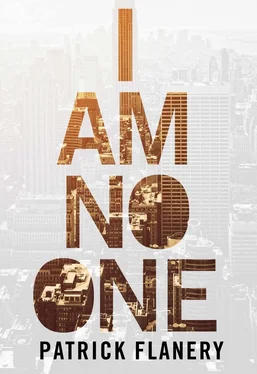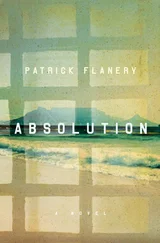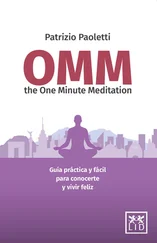‘We just think maybe you need help, Jeremy,’ Susan said, her voice strained like it used to be when I could tell she was out of patience with the world. ‘You don’t look well. Your skin is gray. Your eyes — I haven’t seen you look this way before.’
So I was wrong, Susan was against me as well, and it was then that I began to wonder whether she and Peter were colluding, and if, perchance, Peter might somehow be behind everything that has been happening. Perhaps he wants me out of the way. Perhaps I am too great an embarrassment for him and his family. Perhaps he has known about Fadia for some time, perhaps Stephen Jahn has not only been phoning my mother, but has been poisoning everyone against me, or perhaps Michael Ramsey is merely one of Peter’s many employees. Whatever the case, I knew it was pointless talking to either of them, so I excused myself and said I’d be in touch if there were any further developments.
As I walked back up to West End Avenue I noticed the light in Dr. Sebastian’s office was on, and nearly stopped to see if she had a moment to speak, but then thought better of it. I was not in the correct frame of mind, but I wanted to see her again, or felt, for a moment that flitted in and out of my passing thoughts, that seeing her might dismiss whatever remaining doubts I was having about my sanity, and it’s true, I know this, that the questions Peter asked me were infuriating because they did make me wonder if I might be going mad. I took the subway home, and sitting in that rattling metal car I saw how easily I might become one of the city’s legions of unhinged, a man muttering and unkempt, scribbling proof of his own life on scraps of paper, covering every surface of notebook upon notebook, ever convinced of his sanity.
But then, I came out of the subway at West 4th Street, and who was propped against the newsstand reading a magazine but Michael Ramsey. He was in his dark pea coat, with the collar turned up and a knitted black cap, looking like a Danish sailor. As soon as I was next to him Ramsey looked right up at me, as if he knew in advance the exact moment — down to the millisecond — of my arrival, as if he was tracking me on his phone, watching my progress through the city, a pulsing blue dot on the map. He smiled, and it was the smile that disarmed me. There was nothing smirking or menacing about it, nothing practiced, as in the smiles of Peter, or, it occurred to me, Stephen Jahn. Instead I read pity and concern, but also a kind of desperation from Michael that I should understand what he was trying to do.
I slowed down as I passed, waiting for him to speak.
‘We have to stop meeting this way,’ he said, and turned down into the subway.
On Tuesday I had to teach. My students were already half checked-out for the Christmas vacation but I tried nonetheless to draw them together, despite the blank stares and the expressions of fatigue, the excuses when it emerged that more than half the class had failed to watch Mohammad Rasoulof’s Manuscripts Don’t Burn . One girl who was sipping a bottle of soda and eating a bag of chips complained she had been sick, too sick to watch anything but reality TV.
‘Lay off the soda and chips,’ I shouted. ‘Fruit and vegetables! Protein! Your body’s sick because you’re putting nothing but crap into it. You eat crap, you turn into crap, your mind becomes crap! You eat like that, of course you’re sick. I don’t want to hear any more excuses. You don’t do the work you better be on your deathbed.’
The whole class flinched. A boy in the back of the room whimpered. I’d never said anything like that to any group of students in all my years of teaching. On the contrary, I have always tried to be the easygoing and sympathetic professor who students love. That day, however, I could no longer find the other, kinder Jeremy. He had retreated behind some anterior curtain, or perhaps I had at last allowed myself to step over that boundary in my mind, to run free in the great, perforated state that had long been encroaching on the enclave of my rational self. I struggled through the rest of the hour, teaching only to the brightest among my students, showing clips of the moments when the writers in the film are confronted with their tormentors, when one writer in particular speaks into a dead phone line knowing that someone is listening, that everything he says and does is being monitored.
On leaving the building I was unsurprised to see Michael Ramsey standing across the street, but as I walked towards him, he turned the corner and disappeared into a crowd of students. Was it actually him? Did he expect me to follow? Was he suggesting that here, on campus, we might find a place to meet that would be private enough to speak freely?
That evening a car collected me and my four boxes and drove me uptown where I spent several hours in Meredith and Peter’s apartment with a team of lawyers, men and women, thirties to fifties, white and black and Asian, who grilled me and took away the files for forensic examination. I was told to wait. They would contact me in due course. For now, they suggested I should carry on as if nothing were amiss, although it might be wise, they cautioned, to delay any international travel. Borders can be tricky places. Leaving might not be a problem, but arriving elsewhere, or returning home, could prove difficult.
Days pass. I read and teach and wait. I take the elevator to the lobby, I speak with Ernesto and the other doormen, Rafa and Manu and Ignacio. I walk to the grocery store around the corner where I pay more than a dollar for an organic apple, sometimes I go in the middle of the night to buy cereal or cheese because the novelty of a truly twenty-four-hour business is still fresh, and walking those aisles at two in the morning, speaking with clerks who would rather be anywhere else, I notice the enclosed seating area where people can consume a quick meal, a collection of plastic chairs and fiberglass tables that is closed overnight lest the homeless or the destitute try to seek refuge.
I attend a guest lecture in the English Department by a young Pakistani-American professor at Princeton who speaks about Jafar Panahi’s films Closed Curtain and This Is Not a Film , both of which I teach in my Cinema of Surveillance course. There are only ten people in the room, no worse than you might find at a research seminar in Oxford, but not what I would have hoped for in a city like this. I go to dinner afterward with the host from the English Department — an Englishman around my own age who lives just downstairs from me in the Silver Towers — and the young professor from Princeton. We eat at a Malaysian restaurant and the next day I end up with food poisoning, which keeps me circling my apartment, orbiting bed and toilet and kitchen sink, and in so pacing my small quarters, I think how quickly I might accommodate myself to confinement.
Every day, either in the morning or evening, sometimes at lunch, I encounter Michael Ramsey. Occasionally we greet each other, but often he pretends not to see me and simply walks away once I begin approaching him and then I ask myself if it is really Michael I am seeing, or if my brain is playing tricks. Sometimes I call after him, shouting his name, but he never turns around.
The lawyers Peter engaged on my behalf have not returned the files, and so I remain in a state of uncertainty. How much could a group of New York lawyers determine about Saif’s associations? Such matters would seem to be beyond their investigatory powers, but perhaps I am naïve about what is now possible. All I can hope is that Fadia’s account, the account into which my money dribbles on the first of each month, ends up being in her name alone, and that the only serious issue is one of relation: Fadia’s relation to Saif, and my relation to Fadia.
Читать дальше












